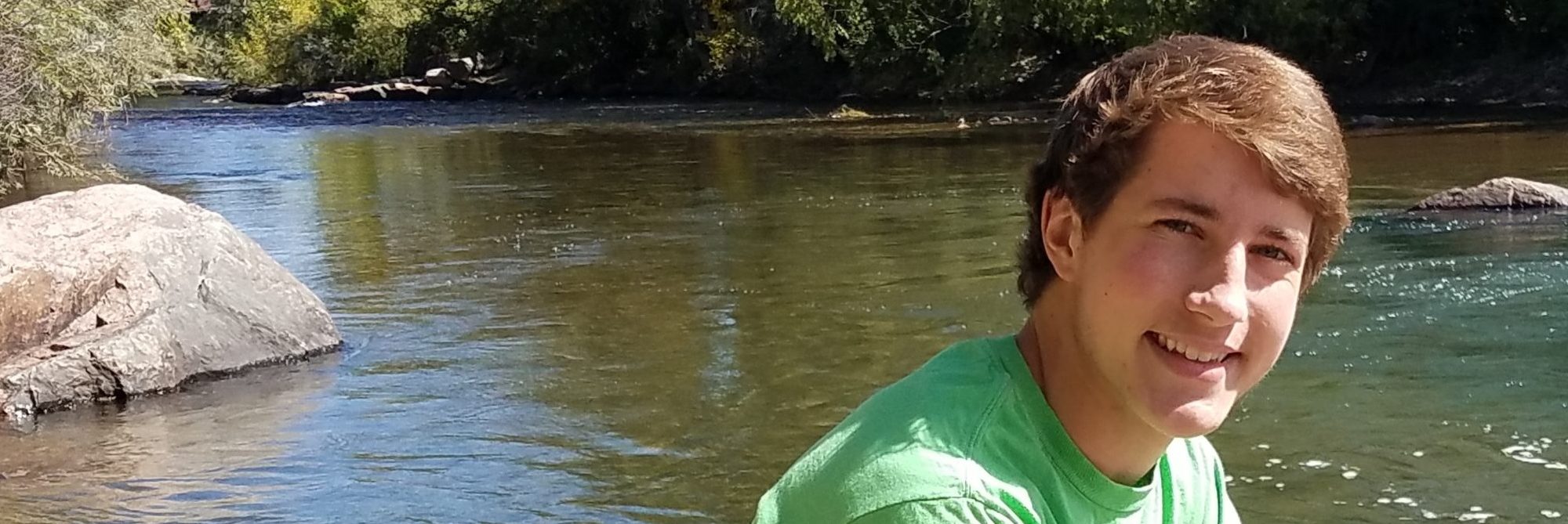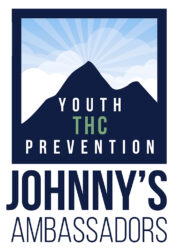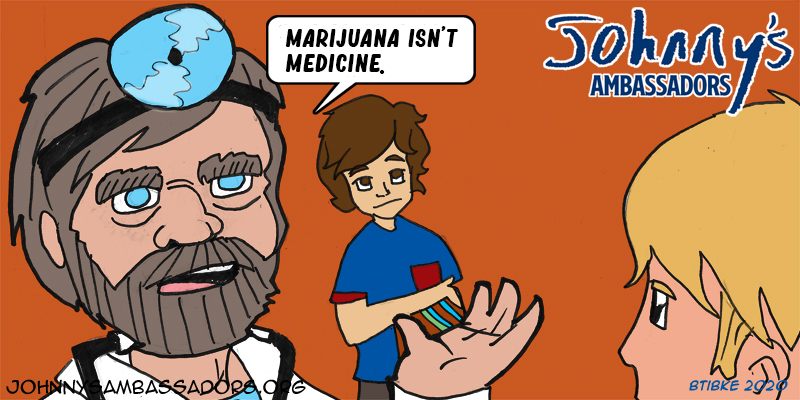By Laura Stack
Teens may have heard incorrectly that marijuana can help them get over negative things happening their lives. Some people claim cannabis is a miracle drug, with few negative effects; however, their claims are mostly wishful thinking and marketing tactics to get a new generation addicted to their products. It’s important for you as their parent, grandparent, or loved one to understand the difference between short-term symptom relief and long-term problems caused by using marijuana. When you’re educated, you can knowledgeably explain the dangers to them and get them proper medications if needed with a legitimate prescription.
Despite popular belief, it’s rare for people to receive a real prescription for marijuana as medicine. If your teen were to receive an actual prescription, it would be in pill or liquid form, not weed you can smoke or dabs you inhale.
Here’s a list of all the cannabis-derived drugs approved by the U.S. Food and Drug Administration (FDA) as of September 2020:
- Epidiolex (this is NOT THC, which gets you high; it contains a purified cannabidiol CBD, which does not get you high). It’s prescribed for two rare seizure disorders.
The FDA has also approved three other drugs containing synthetic cannabinoid compounds:
These FDA-approved uses of cannabinoids are for nausea associated with chemotherapy and the treatment of anorexia for weight loss in AIDS patients. People or parents with children with these conditions are grateful these medications can be helpful.
However, NONE of these prescriptions contain natural THC, the active ingredient in marijuana that gets you high. Epidiolex has CBD as an active ingredient, which doesn’t get you high, and dronabinol is synthetic. In other words, there are no FDA medically approved reasons to use smoke marijuana or use marijuana products containing THC. Your doctor can’t give you a “prescription” outside of the FDA-approved reasons in the lists above.
You may be thinking, “Wait, didn’t our ancestors use marijuana for supposed medical reasons?” Yes, but just because some groups reportedly used marijuana to treat pain and other maladies since ancient times doesn’t mean we don’t have more effective treatments now. For example, there’s been research showing cannabis decreases intraocular pressure in glaucoma patients, but the effects last just 3-4 hours. There are much more effective treatments, and you don’t have to deal with drug crashes or addiction.
As for pain, numerous studies have concluded that smoking pot doesn’t decrease pain any better than a taking a sugar pill. Others have shown that, at best, cannabis works about as well as codeine—and some of the relief reported may result from the placebo effect. Unless you’re after a high, why use weed for pain if codeine is cheaper? On the other hand, cannabis use can increase pain sensitivity for some kinds of traumatic pain.
In time, researchers and pharmaceutical companies may approve new cannabis-related drugs for additional uses, but that time has not yet come. When it does, any new medicines will mostly likely be pills or liquids, not resembling recreation marijuana products such as dabs or smoking weed in any way. If past experience holds true, they won’t contain THC, either.
But What About Medical Marijuana Cards?
So, getting a “med card” for marijuana is about your teen wanting to get high for self-diagnosed problems, outside of the approved medical uses.
Medical marijuana dispensaries require a medical card for purchase of cannabis products in the 33 states (and DC) where medical marijuana is legal. If you’re over 18, believe you need it for some “medical” purpose, and a doctor agrees, you’re in. Teens can go to a “weed clinic” that exists solely to provide users with medical marijuana cards. The marijuana exam fee costs $50 to $200 without insurance, sometimes a bit more. Once approved, the card is usually good for a year, although some states, like Arizona, now have two-year cards. The fee for registering a “weed card” varies from $0 to $200. In some states, federal or state subsidized health care pays part of the fee, while in West Virginia, the state may waive the fee if you can prove hardship.
While it is illegal for any teen to use marijuana recreationally until 21 years old, they try to get around it by getting a med card at the age of 18. But med cards are hardly the cure-all teens might think. Yes, getting high may make them temporarily forget their problems, but that just means they don’t care for a while—it doesn’t fix their problems. Marijuana isn’t medicine—it’s numbness. Your issues are still there when you come down off your high. Teens may feel good when first trying it (if they don’t experience psychosis), but those happy feelings are short-lived.
It Gets Worse
Teens may perceive marijuana may help them “chill out” if they are feeling anxious; but in fact, marijuana will cause them to feel MORE anxious in the long term. In fact, marijuana used by adolescents is quite dangerous for their brain development and mental health. We know for certain that cannabis use can cause severe psychological and physical effects in both the short- and long-term. This is especially true for modern cannabis, which may be contain up to 90-95% THC. Low-end effects start with compromised judgment, permanently lowered IQ, and loss of motivation but can scale up to anxiety (including panic attacks between uses, often due to cannabis-induced anxiety disorder), depression, psychosis, paranoia, and a much greater risks for schizophrenia and suicidal thoughts and behavior in the long-term.
Too much marijuana is simply poisonous: marijuana toxicity causes nausea, vomiting, panic, anxiety, high blood pressure, confusion, and most of the other symptoms some people seek to treat with medical marijuana. Some frequent users suffer cannabinoid hyperemesis syndrome (CHS), which can, in rare cases, lead to death by dehydration.
Don’t Fall For It
Teens may be able to find a doctor willing to give them med cards if they are over 18. If a doctor honestly believes cannabis has medicinal effects (anxiety, stress) in its recreational forms (THC), it isn’t supported by significant scientific proof or FDA approval. If your teen’s “medicine” contains THC, it isn’t medicine. It arrests the development of the adolescent mind until it’s fully formed at nearly 30 years old.
Some unwary parents help their teens to obtain a med card or even buy marijuana for them if they don’t have cards. Now you know the best way to help your child is to take him or her to a licensed psychiatrist for a federally approved medicine or treatment, not marijuana.



Dear Laura,
As a parent and someone that has been in the field of drug prevention for many years, I appreciate everything that you have shared and particularly the strategies you’ve developed in order to help other parents. The number of scientific Board members of your organization are impressive. I truly believe that eventually, the science will win out in the end. You’re brave and true to your son’s memory. Keep up the good fight and never give up!
Thank you, Susan! I appreciate the kind words and your confirmation of the article as a drug prevention specialist. We are desperate to get the word out and save teens from this poison! We appreciate you being one of Johnny’s Ambassadors!
Thank you for continuing to educate the masses through your tragedy. Amazing how ignorant we all were and it took the lives of our loved ones to have to learn the hard way. Your work and your drive is amazing and truly appreciated. Godspeed!
Rhonda, we are grateful for your faithful support and sad we had to come together this way. We are linking arms in fighting the youth marijuana crisis!